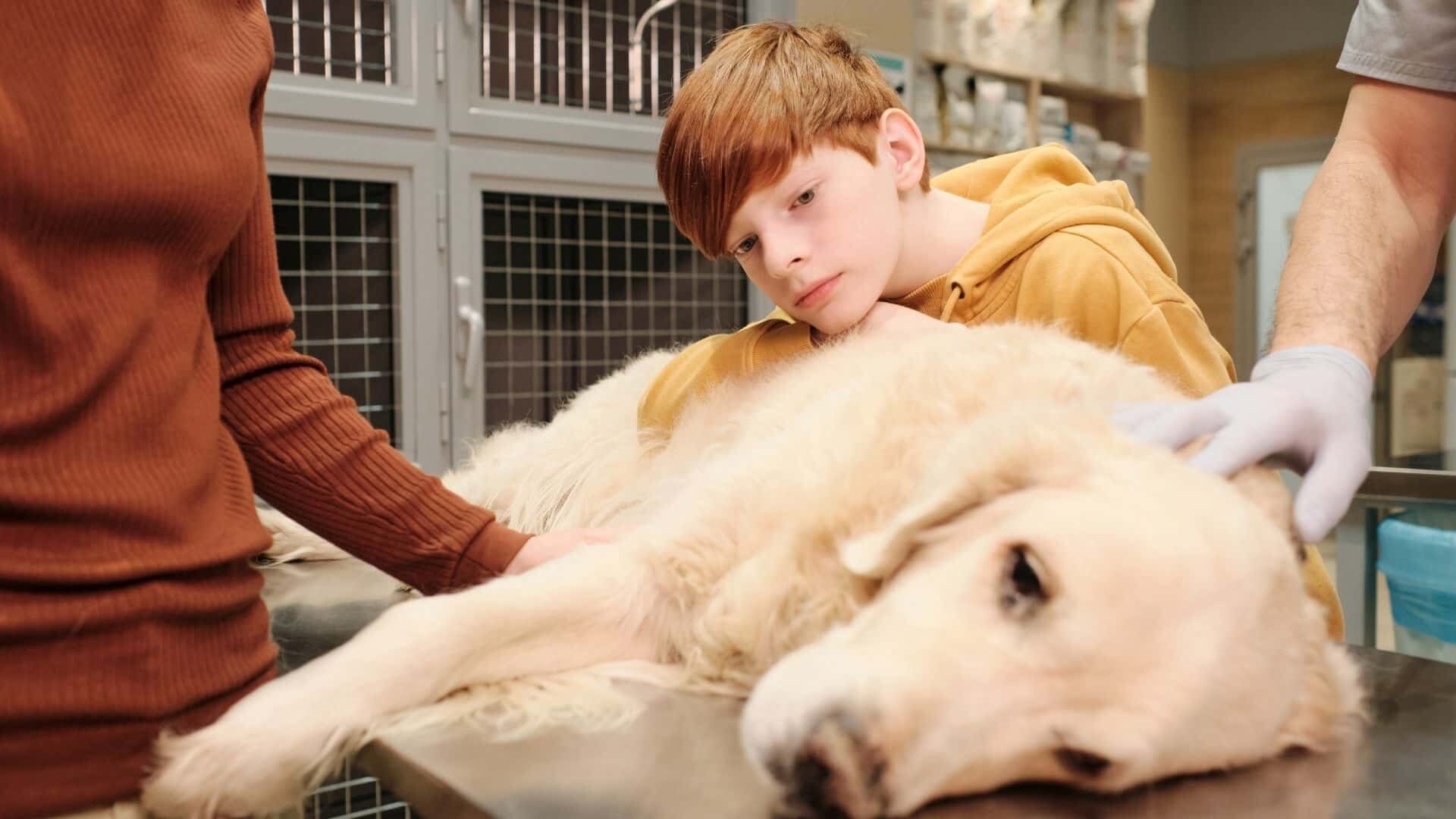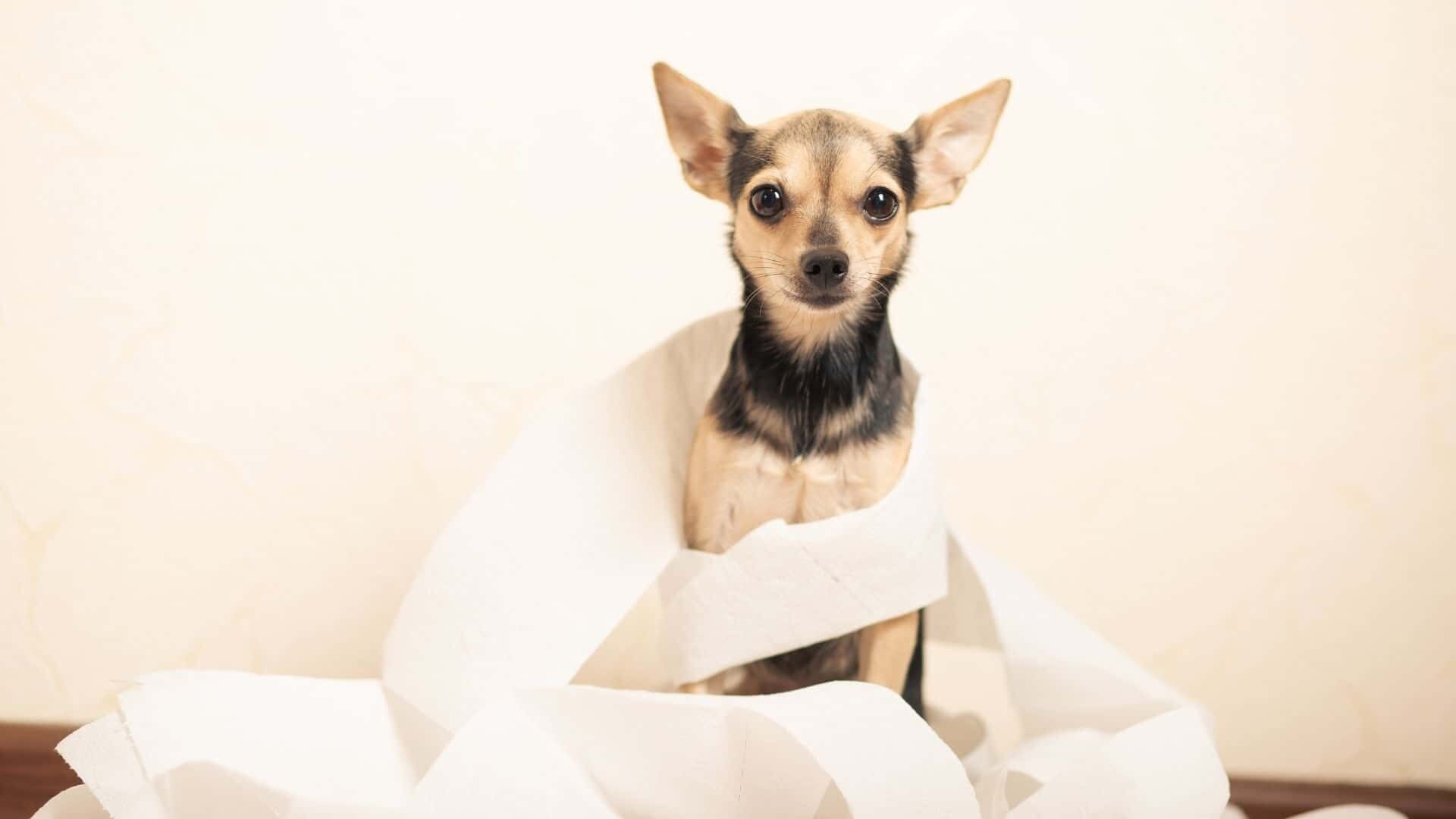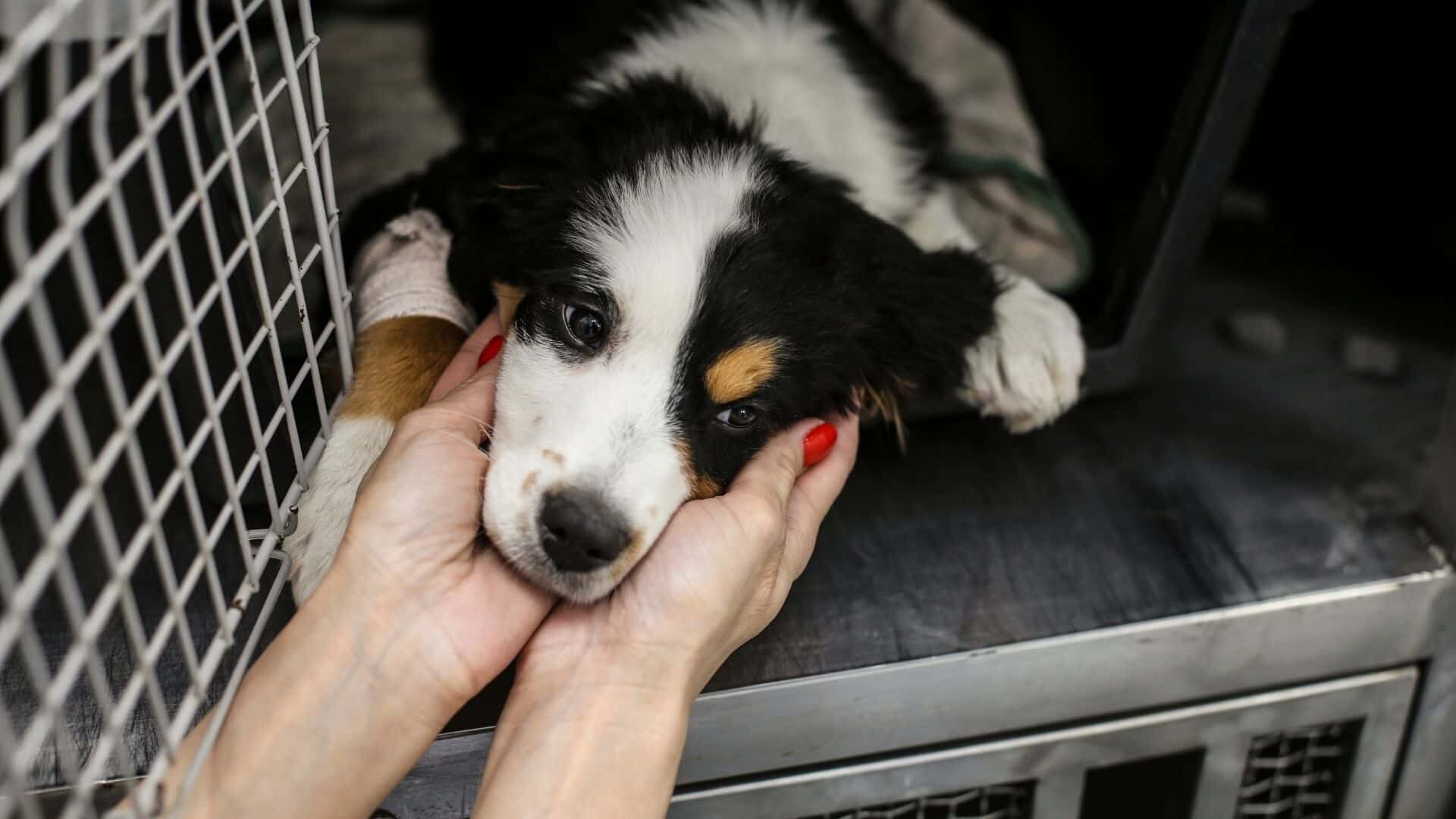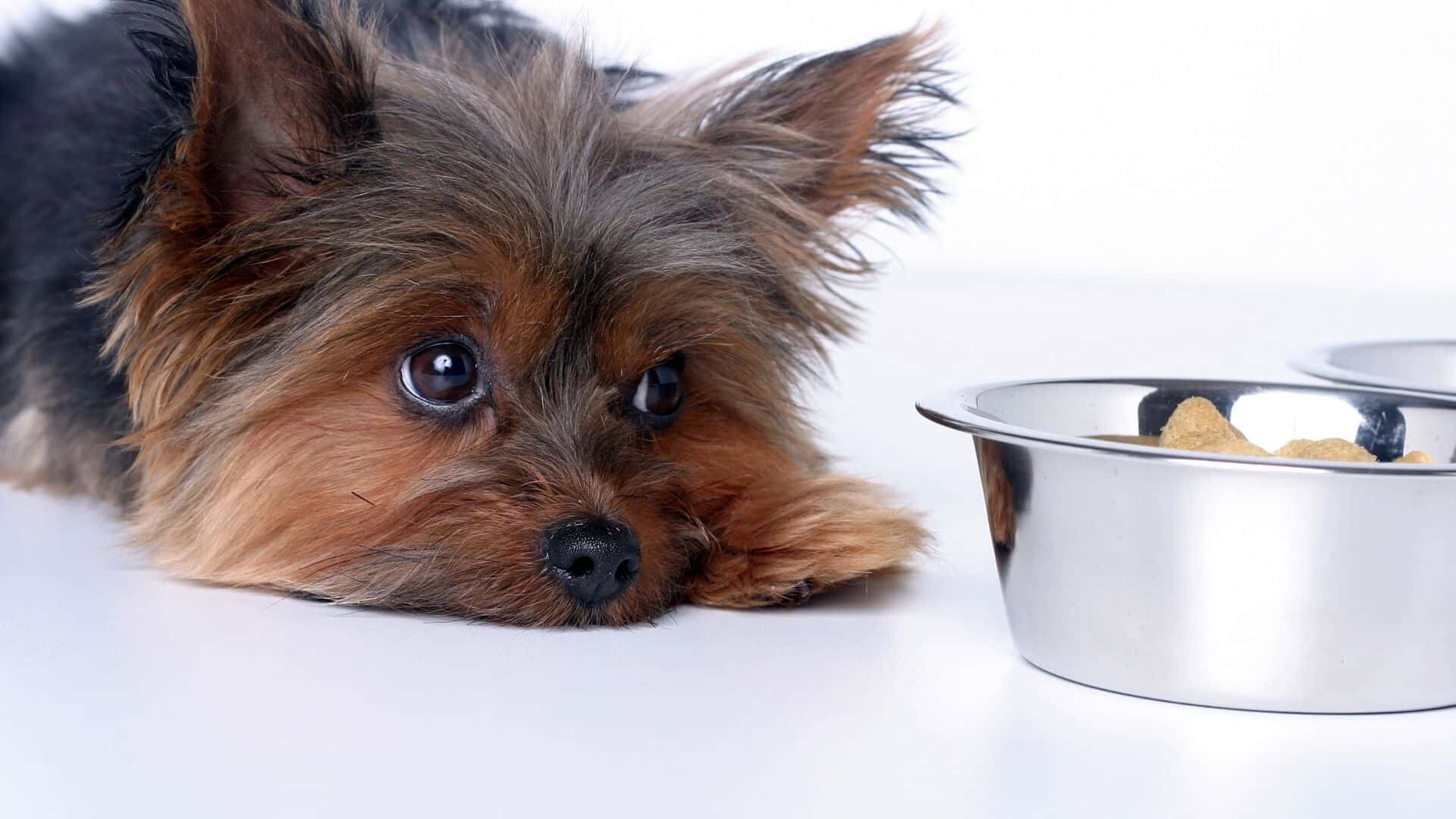Constipation in dogs can begin at any time, and it can end just as quickly. Congestion in dogs occurs when their bowel movements are unable to produce normal stool as they go about their daily lives. Dogs with constipation will either strain or refuse to defecate if they have the condition. If they can pass gas, they may have rock-hard stool, which would be excruciating for them.
You should also keep an eye out for signs such as lethargy and depression in your dog. Constipation may be a sign that your dog isn’t feeling well.
A lack of fiber in the dog’s diet or the consumption of something inedible can lead to constipation. Your dog’s age or lack of exercise could also be a contributing factor. Tumors of the digestive tract, pelvic tumors, prostate enlargement, or other spinal or metabolic injuries are more serious possibilities.
Why do dogs get constipated?

Constipation in dogs can be caused by a variety of factors, but diet is the most important one. Constipation in dogs can have three main causes: intraluminal, extraluminal, or intrinsic factors, as defined by vets.
1. Intraluminal cause
A problem in the colon is defined as an intraluminal cause. Chronic constipation in dogs is most commonly caused by this. Due to the lack of water intake or the unwillingness to defecate, the problem is associated with inability to pass feces (the dog may have a tumor in the colon or experiences pain when defecating).
Chronic constipation can be caused by a variety of factors that are not related to the digestive system. An enlarged prostate gland, narrowing of the pelvic inlet as a result of a poorly healed pelvic fracture, or abnormal narrowing of the colon are all examples.
2. Not getting enough water
If your dog isn’t getting enough water or moisture in his diet, he may get a blocked up intestine. At all times, your dog should be able to access clean water. Wet or canned food may be necessary for him as he gets older in order to keep things moving along.
3. Lack of proper exercise
Your dog’s bowels can become sluggish if they aren’t moving enough. Taking your dog for a daily walk is good for his digestion as well as his mental and physical health, as well as his weight and joint mobility.
Medications may cause constipation as a side effect. Make sure you know what to look out for by reading the labels on your dog’s medication. Consult your veterinarian if the problem persists.
4. Foreign objects
It is common for a dog to swallow something he shouldn’t have, such as a piece of clothing or other non-edible object. A veterinary emergency clinic should be contacted immediately if an obstruction occurs. If your pet has an obstruction in his or her intestines and isn’t able to eliminate, you should be aware that this can cause constipation.
5. An enlarged prostate
An enlarged prostate can cause constipation by putting pressure on the colon, which restricts the flow of urine. Getting a vet checkup if your male dog is squatting or raising his leg for a long period of time with no sprinkles is essential.
6. Injury in lower spine
Pain in the lower spine and pinched nerves can slow the movement of material through your dog’s digestive tract or make it difficult for her to push and eliminate properly if she has severe lower spine pain.
What are the symptoms of constipation in a dog?
Constipation’s symptoms are obvious, such as:
- For a few days, there was no bowel movement.
- When you pick them up, they feel like pebbles.
Constipation is associated with a number of other symptoms, including:
- Tense bowel movements that fail to produce a defecation, or small amounts of blood-tinted liquid fecal matter;
- Dyschezia is a medical term for defecation that is painful or difficult.
What could be causing my dog’s constipation?
Water and electrolytes are re-absorbable from the waste and undigested food in the large intestine or colon after digestion has been completed and end products of digestion have been absorbed in the small intestine.
Peristalsis (or peristaltic waves) in the gastrointestinal (GI) tract facilitates the movement of food and waste through the digestive system.
Peristalsis can be affected, causing the rate at which feces move through the colon to increase (as it does during diarrhea) or decrease (as it does during constipation). Re-absorbing water in the colon causes feces to harden, making passage difficult or impossible. Stools that are as hard as rocks are often referred to as “concrete” by experts.
How to know when to see a veterinarian if your dog has constipation?

There are no home remedies that can help a dog with severe constipation. You must make an appointment with your veterinarian as soon as possible. It is possible for a dog’s gastrointestinal tract to be permanently damaged by constipation.
If you notice any of the following symptoms in your dog, you should take him to the vet as soon as possible:
Symptoms of discomfort include pacing, straining to urinate, panting, and frequent gazing at or licking of the stomach.
- Vomiting
- Avoiding food
- More than three days without a poop
- Looks sluggish or exhausted.
- There is a bulging belly (seems larger than normal)
- Your dog has blood in his feces.
Constipation in dogs can be treated with simple home remedies if the symptoms are only mildly bothersome. Constipation symptoms include:
- Squatting down to urinate
- Pooping takes longer than usual.
- Looking back at their hind end a lot while they’re pooping, panting, and walking in a hunched position.
- Small amounts of harder-than-normal feces are being produced.
How do you detect constipation in your dog?
What causes constipation isn’t the same thing as your dog’s protracted potty search (and yes, there are some ways you can encourage your dog to poo and pee more quickly).
Despite the fact that this can be annoying (especially on your late-night walks), your dog’s constipation should be taken seriously.
1. Trouble passing stool
A dog that is constipated will spend a lot of time hunched over and attempting to defecate, with little or no success.
2. More than 48 hours’ gap
Dogs are supposed to poop every day, but a lack of pooping for more than 48 hours is a sure sign of a backed-up dog.
Constipation can cause your dog to become whinier and more vocal than usual, or signal to go outside more frequently with strange vocalizations.
3. Behavior
It’s a good idea to keep an eye on your dog’s behavior when you’re trying to give him a tummy rub. However, bloating, which can cause a swollen abdomen, retching, panting, and more, is a different matter. If you have a bloat-prone breed like a Great Dane, always call your veterinarian for advice.
4. Food Refusal:
Your usually chow-happy hound may be uninterested in food if everything grinds to a halt.
Home remedies for dog constipation

If your dog is suffering from constipation, the following home remedies may help:
1. Your dog should be adequately hydrated.
Constipation in dogs can be caused by a lack of water intake. Constipated dogs need to be properly hydrated in order to avoid dehydration-induced diarrhea. Dogs should drink one ounce of water for every pound of body weight, but there is no recommended daily amount. 2 Low-sodium chicken broth can be used as an incentive for your dog to drink water if they don’t like the taste of it.
2. Remove hair by hand
Matted hair in the rectum of dogs with long hair or a lot of shed hair can impede the passage of feces. Your dog can be bathed to soften any stool that may be caught in the hair around his rectum if this is the case for him. Electric clippers can also be used to remove the tangled hair.
Avoid cutting your dog’s hair in this area with scissors because a cut in the wrong place can necessitate emergency surgery. It’s possible to get help from a veterinarian or dog groomer if you don’t feel comfortable doing it yourself because of matted hair.
3. Exercise and assistance
Constipation in dogs can be exacerbated by a dog’s inability to get enough exercise, which is necessary for healthy intestinal movement and digestion. Take your dog on frequent and/or long walks through his favorite poop spots. It may take a few tries, but the more active he becomes, the more active his intestines become.
It’s also possible that as your dog ages, he won’t be able to support himself in the correct defecting position. You can try using a special harness to support some of his weight when he postures.
4. Take a lot more walks
Getting your GI tract moving again is made easier by regular physical activity. You may want to take your dog for an extra walk in the morning or afternoon if he or she is feeling a little sluggish. Feces movement can be sped up by taking short, frequent walks.
Your dog’s constipation may be alleviated by the combination of exercise and the smells of other dogs that have previously used the area.
5. Increase your dog’s fiber intake
Fiber can help some dogs with constipation, but it can also make other dogs’ problems worse if you add it to their diet.
It’s best to start small and see how your dog reacts. Both of these are safe bets.
Small dogs can have 1 teaspoon of canned pumpkin per meal. Dogs of a larger size can tolerate up to about 1 tablespoon. Note: Pure canned pumpkin, not pumpkin pie filling, should be used.
You can start by giving half a teaspoon per 10 pounds of body weight mixed with a meal once a day to see if that helps alleviate constipation.
6. Try probiotics
Probiotics like NutramaxProviable or Purina Pro Plan Fortiflora, which are available over-the-counter, can help reestablish healthy bacteria in your dog’s colon.
7. Oatmeal oil
Olive oil is an excellent stool softener and digestive system lubricant for dogs. Add a few drops of olive oil to your pet’s food and you’ll likely notice a difference right away.
As a last resort, olive oil can cause diarrhea in dogs if used too frequently, so it should only be used when your dog’s discomfort is extreme. Vegetable oil can be substituted for olive oil if you don’t have any on hand.
8. Adjust your dog’s nutritional plan
Your dog’s constipation may be eliminated if you change their diet. If your dog isn’t drinking enough water, it may be due to a lack of fiber in their diet.
If you’re fed only kibble, consider switching to a mix of wet and dry dog food. Your dog’s daily water intake can be increased by feeding them wet dog food, which makes it easier for them to digest. Consult your veterinarian if you’re unsure about which dog foods will be the most beneficial to your pet.
9. If only for a short period of time, try eating canned food
In the event that your dog isn’t a fan of the water bowl, there is an alternative method for providing them with the extra moisture they need. Make the switch to canned or wet meals. It’s great if your dog is eating a high-protein kibble diet. However, they must be able to keep up with the water intake required for that diet. Switch to wet food for a while if you’re concerned they’re not getting enough. The majority of dogs will welcome and enjoy the change.
10. Try giving them bran as a treat
Even if your dog is drinking plenty of water and getting plenty of exercise, they may be lacking in fiber. There’s also bran, which is one of the best sources of fiber for dogs. When it comes to wheat, oat, or rice bran you can simply sprinkle some on top of their meals. Because Labradors and other large breeds eat like garbage trucks, this may be easier to incorporate into wet or canned food.
11. Prepare a ginger broth with chicken or beef
With this remedy, you and your dog both get to enjoy a delicious meal. Make a chicken soup with ginger and broth. Keep some of the chicken in there for them if you’d like, but don’t give them the chicken bones. Your dog’s bowl should be free of extra spices and seasonings.
12. You can also give them a little bit of milk
Overconsumption of dairy products, as with probiotics, can result in diarrhoea. It will help to get their digestive system moving again, but there may be new complications as well. However, they can drink a small amount of milk. Small amounts, from a few tablespoons to a quarter cup, are all that’s necessary.
Watch Massage for constipation- dogs and cats | Video
Help my dog poop! What can I give him to aid in this?
Food high in fiber, which helps to lubricate the digestive system and soften the stool, is recommended for your dog. Doing so increases the likelihood of a bowel movement, which is good news.
What is an all-natural stool softener for dogs?
Some of the best dog stool softeners are found in nature.
Puree of pumpkin
Coconut oil
Fiber-rich foods like apples, carrots, and peas can also help your child’s fiber intake.
Can I give my dog olive oil to help with constipation?
Yes, you can give olive oil to your dog if he’s having tummy troubles. In the absence of olive oil, you can use vegetable or coconut oil as a substitute.
What can aid a dog in removing a stumbling block?
A veterinarian is the only one who can remove a blockage in a dog’s digestive tract. Bowel obstructions can be dangerous for your dog, even if they clear on their own.
What can I give my dog for constipation as a home remedy?
Constipation in dogs can be treated with a variety of home remedies, including:
Cacao butter
Puree of pumpkin
Olive oil
Fiber
Probiotics
Laxatives
For more options, you can also increase your dog’s water intake, stimulate their digestive system, and change their diet.
Conclusions

There are a number of home remedies that can help your dog if they are suffering from a stomach ache. There are times when making sure your dog gets enough water or fiber is all it takes. They may also need a stool softener if they have a bowel obstruction.
Your dog’s symptoms will help you catch this constipation problem before it gets out of hand. As a result, they can improve their overall health and well-being by regularly taking in natural supplements.
Bottom up
Please comment below about your ideas and share this “How to Treat Your Dog with Constipation at Home: 12 Remedies” article with your friends.
Stay tuned with our website to find out more exciting stuff. Don’t forget to check out our previous articles too.
Until the, Read about, Why Does My Dog Cry When I Come Home: Guide to Stop Crying





